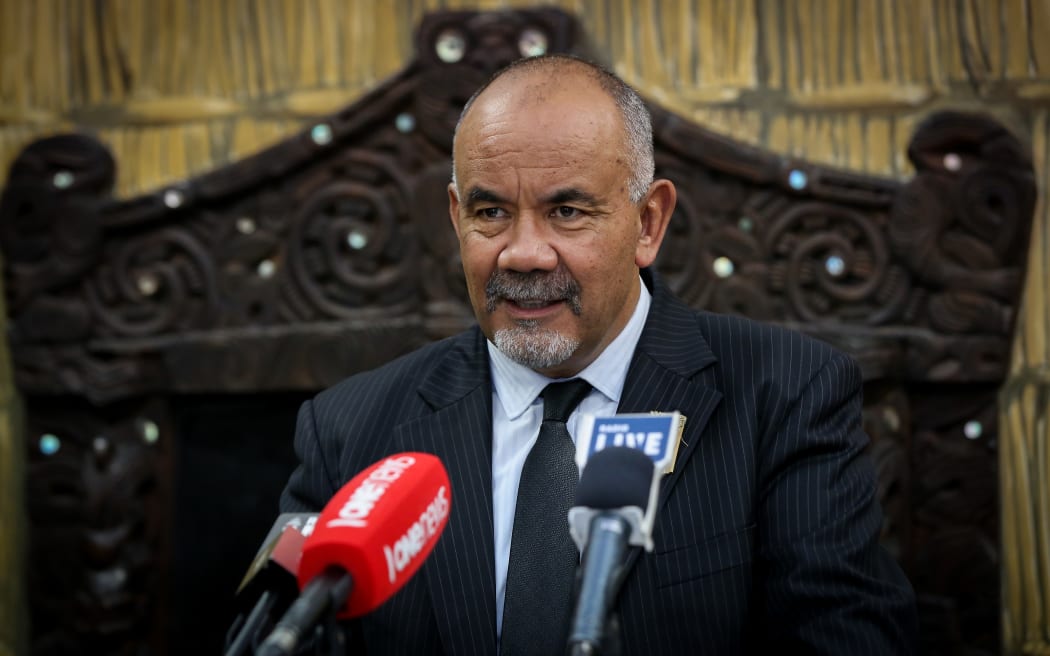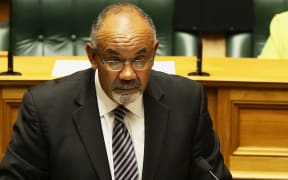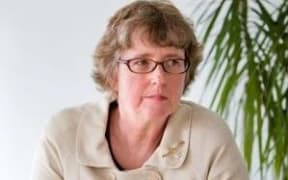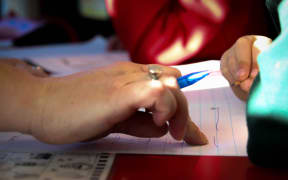A new report into Whānau Ora paints a positive picture, but provides no hard data and does not evaluate the spending of the first $140 million.

Te Ururoa Flavell, the Minister responsible for the programme Photo: RNZ / Alexander Robertson
Whānau Ora was set up in 2010 as part of the confidence and supply agreement between the Māori Party and National.
The report, which surveyed almost 900 whānau representing about 5000 people, found more than half experienced improvements in accessing services, happiness, relationships and leadership.
But it did not touch on how the programme was funded and left out the controversial Whānau Innovation and Intergration Fund, which gave $20 million directly to whānau in its first four years.
The Auditor General this year criticised 31 percent of Whānau Ora funding being spent on administration, but the Minister responsible for Whānau Ora, Te Ururoa Flavell, said that had dropped to less than 15 percent.
The report also noted traditional tensions, competition and silos existed between services and providers, which inhibited collaboration.
Mr Flavell said the report showed whānau-centred approaches were improving the lives of tāngata whenua.
"The immediate gains for whānau include better access to services, increased motivation for change, improved parenting skills and the resultion of various crises that happen for whānau.
"Over the four year period, some longer term gains were also apparent, including greater participation in education, better housing, better nutrition and higher household incomes."
But Mr Flavell said there were also challenges for the programme.
"Whānau Ora has to be picked up in a far greater way by other ministries and ministers. The great thing is that we have the Whānau Ora Partnership Group, which is at least a desire on the part of the Crown to work with iwi and indeed our ministry to deliver those outcomes."
He said a measurement framework was being set up by iwi and the Government which would set priorities for future investments and research priorities.
'Still a lot to be done'
The leader of central North Island iwi, Ngati Tuwharetoa, Napa Otimi, said the roll-out of Whanau Ora had at times been rough for many iwi.
"I think the resourcing that was made available was a genuine one, but the implementation in Tuwharetoa has been at times difficult amongst the competing groups for the resouces that are available"
Mr Otimi said while the iwi agreed with the kaupapa and whanau-centred approach, there was still a lot to be done in relation to working with other agencies.
He said the iwi had been trying for over six months to talk with Child, Youth and Family about ways to deal with the number of its descendants in state care.
"We are resigned to the fact that, well, never mind about the other agencies.
"A lot of our families are looking at what they can do - how can we build greater whanau awareness amongst our own, starting with our own family."
"At times, we don't wait for the support services that might be available, we just go out and do it"
He said the issue of homelessness and suicide was great, and the need for a whanau-centred approach was higher than ever.
The report said young and transient whanau and those in severe hardship were still hard to reach.
It is seeking a stronger emphasis from providers on rangatiratanga or chieftly autonomy, so whanau can take control and deliver their own solutions.





